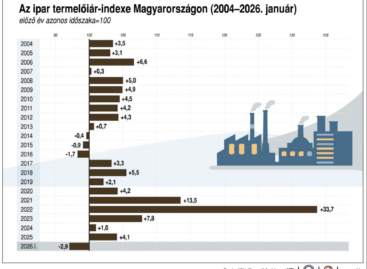While raspberries are becoming more and more popular abroad, their growing area is getting smaller and smaller here
According to KSH data, raspberries were grown on 1,500 hectares in Hungary at the turn of the millennium, and since then the cultivated area has been continuously decreasing.

Many people are fans of the ruby-colored fruit, but Hungarian consumers need imports. (Photo: Pixabay)
Serbia is the largest producer of raspberries in Europe, according to the July report of the Serbian Statistical Office, the harvest may increase by 4 percent to 114.9 thousand tons this year compared to 2021. Poland has developed into the leading raspberry producer in the European Union, the cultivation area is 27-30 thousand hectares, and the harvest has been between 76 and 130 thousand tons in recent years. In Poland, due to the high purchase price of raspberries in 2021, the area of plantations has increased, the raspberry harvest is estimated at 111 thousand tons, which is 7 percent more than the previous year.
In some places, the raspberry harvest has increased, in other places it has decreased
The main raspberry region in Europe is Huelva in Spain, where the raspberry harvest is expected to be around 49,990 tons this year, which represents a 7.5 percent increase compared to the previous season. According to Eurostat data, Spain is the largest exporter of fresh raspberries in the EU internal market, and Germany is the leading importer. The Union’s fresh raspberry foreign trade balance was negative in 2021: imports fell by 10 percent to 36.3 thousand tons, and exports by 23 percent to 21.4 thousand tons compared to the previous year. Imports of fresh raspberries from Morocco fell by 7 percent to 32.9 thousand tons in the observed period. In the first five months of this year, imports from Morocco increased by 18 percent to 23.4 thousand tons. Poland is the largest exporter of frozen raspberries on the internal market of the Union, and Germany is the importer. The frozen raspberry foreign trade balance of the community was negative in 2021: imports amounted to 113.3 thousand tons, while exports amounted to 17.9 thousand tons. The largest supplier of frozen raspberries in the EU is Serbia, from which 66.4 thousand tons arrived in 2021.
There are fewer and fewer raspberries growing in Hungary
According to experts, due to this year’s drought and damage caused by the spotted-winged muslica, fewer raspberries than last year are expected. According to KSH data, the foreign trade balance of fresh and frozen raspberries was negative in 2021: imports of fresh raspberries (mainly from Spain) decreased by 11 percent to 346 tons, while exports barely exceeded 1 ton (+38 percent). In the first five months of this year, the delivery of fresh raspberries decreased by 13 percent to 155.7 tons compared to the same period last year. According to KSH data, imports of frozen raspberries fell by 16 percent to 2.31 thousand tons, and exports fell by 45 percent to 651 tons in 2021 compared to the previous year. In the first five months of this year, the import of frozen raspberries decreased by 23 percent to 621 tons, and the export decreased by 6 percent to 258 tons compared to the same period of the previous year.
According to the data of AKI PÁIR, domestic raspberries appeared in the Budapest Wholesale Market in the 21st week. The producer price of raspberries increased by 15 percent to HUF 1,922/kilogram 24–31, 2022. per week compared to the same period of the previous year
AKI
Related news
KSH: The volume of exports of food, beverages and tobacco decreased by 5.7 percent, while imports decreased by 13 percent
🎧 Hallgasd a cikket: Lejátszás Szünet Folytatás Leállítás Nyelv: Auto…
Read more >KSH: in January, the number of guests increased by 5.3 percent and guest nights by 3.6 percent compared to a year earlier
🎧 Hallgasd a cikket: Lejátszás Szünet Folytatás Leállítás Nyelv: Auto…
Read more >Related news
(HU) Átadták a SIRHA Budapest 2026 Innovációs Termékverseny díjait
🎧 Hallgasd a cikket: Lejátszás Szünet Folytatás Leállítás Nyelv: Auto…
Read more >How does the forint exchange rate affect consumer prices?
🎧 Hallgasd a cikket: Lejátszás Szünet Folytatás Leállítás Nyelv: Auto…
Read more >HELL CITY has arrived, led by Michele Morrone
🎧 Hallgasd a cikket: Lejátszás Szünet Folytatás Leállítás Nyelv: Auto…
Read more >









